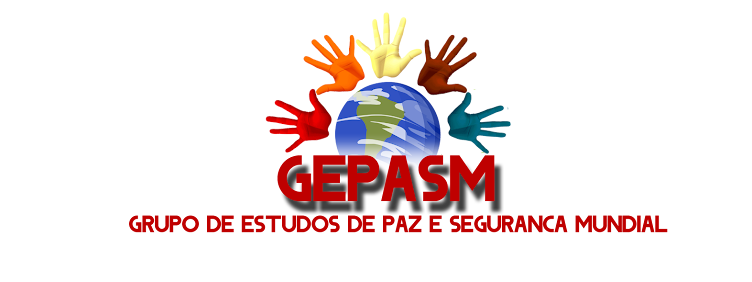The PUA/GEPASM
conducted the Art and International Relations Minicourse by invitation of
Professor Xaman Korai (UFPB), during the IV Academic Week of International Relations
of the Federal University of Paraíba (UFPB), which occurred in June 08th
to 12th, 2015.
The course
tried to contextualize the more theoretical approaches that allow the insertion
of art as an instrument of empowerment, training and expression. It was
conducted in two days, 10th and 11th. Facilitators were: Luis
Eduardo Santos de Oliveira Ramos, Arthur Muniz Fernandes, Suerda Gabriela
Ferreira de Araújo, Kalyandra Ferreira, Luan do Nascimento Silva and Paulo
Kuhlmann, each one with involvement with some artistic approach and studies in
the area.
The purpose
of the minicourse was to explore the potential of art in three dynamics: the
emotional communication between people and groups, reconciliation between
groups divided by conflict, and
emancipation and reconstruction of groups or people in vulnerable social
situations or post-conflict. The idea is that art brings a context of
re-cognition of self and other, as well as reconstruction of relations, of
understanding and social change.
This
minicourse was focused on the work of Paul Lederach, Lisa Schirch and also
Cynthia Cohen about the potential of Arts in Peacebuilding, among other authors,
as well as theorists with vision of art as a basis for empowerment, like
Augusto Boal (aesthetics of the oppressed and theater of the oppressed), which
is widely worked in international contexts, such as Boom and Plastow. These
approaches approximates to the bias of Critical Theory in International
Relations, but not too distant from the dimensions of Peace Studies in Peacebuilding
from below.
At the first
day we showed some art approaches in conflict situations, such as the work of
Payasos sin Fronteras, and the Théatre & Reconciliation, by Frédérique
Lecomte, and we also performed physical exercises of meditation in motion, and
group dynamics of approximation. Later, there was an exercise of Forum Theatre.
 At the end of
the day, we presented a number of situations of conflict and crisis, in which
the participants were divided into groups that should create "artistic
solutions." All crises are real situations that real artistic solutions
had been created.
At the end of
the day, we presented a number of situations of conflict and crisis, in which
the participants were divided into groups that should create "artistic
solutions." All crises are real situations that real artistic solutions
had been created.
On the second
day, the artistic solutions proposed by the groups were presented, as well as the
real solutions implemented.
It was a very pleasurable moment for a
differentiated approach in the field of International Relations in Brazil.
Thank
everyone who collaborated in the room arrangement, in provided means, as well
as the facilitators, without whom the minicourse would not be so good. Oh, and the participants!!!




